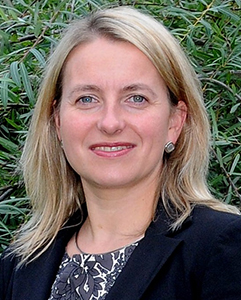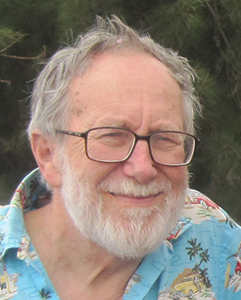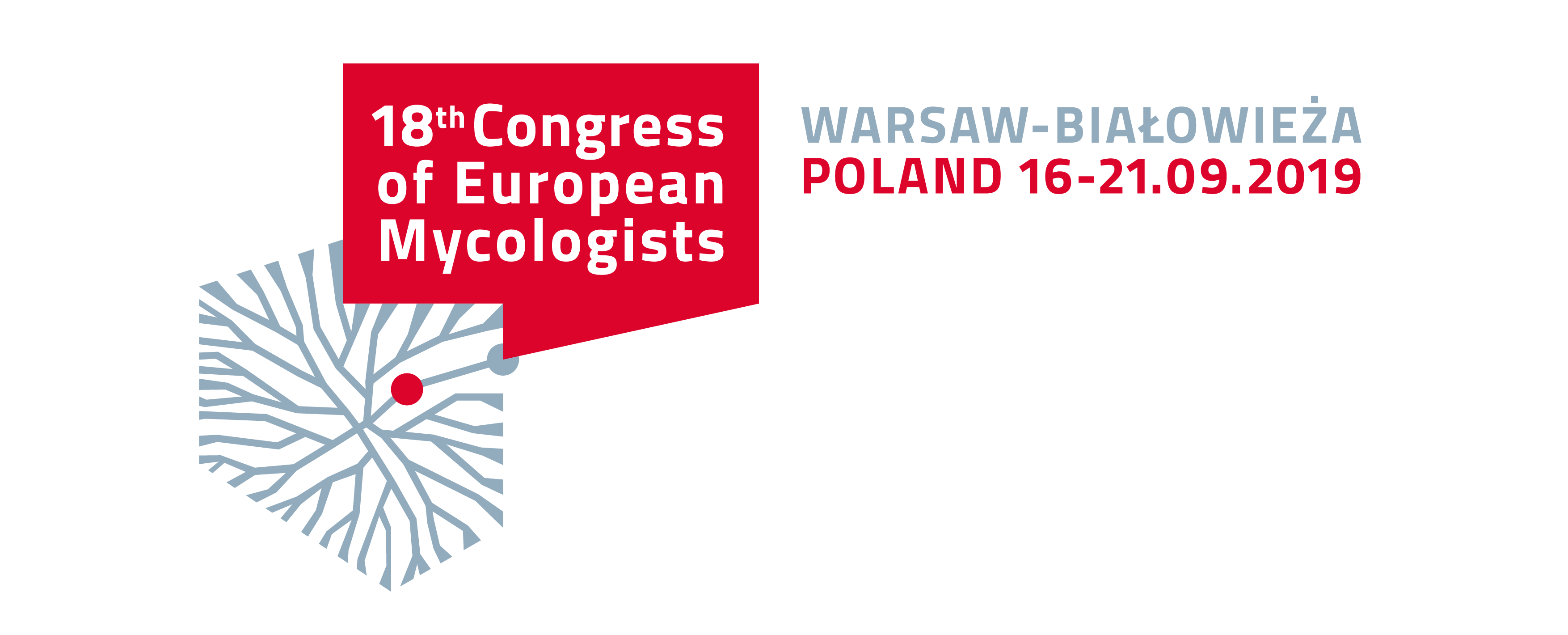The Polish Mycological Society and European Mycological Association extend a warm invitation to all mycologists across Europe and the whole globe to attend the XVIII Congress of European Mycologists which is going to be held September, 16th-21st 2019 in Warsaw and Białowieża, Poland.
The congress will include prompt keynote presentations, talks, poster presentations on fungal biodiversity, genomics, metabolomics, evolution, phytopathology and fungal conservation. We will discuss different strategies for bioremediation and biocontrol. Special emphasis will be put on applying basic science and molecular techniques from diverse areas of mycology towards solving biomedical problems.
Meeting overview
The venue for the meeting will be The Old University Library, a convention center of the University of Warsaw located in the old part of the city, easily accessible by public transportation and at short walking distance from restaurants, cafes and hotels.
On September 18th, we will transfer by buses to Białowieża – the heart of the most famous lowland primeval forest in Europe. We will be hosted by Białowieża’s hotels and the convention center of the Białowieża National Park. Due to space constraints, attendance will be limited to 300 participants, on a first-come, first-served basis.
The official program, beginning on Monday, September 16th, will mostly follow the traditional organization of a CEM meeting: it will consist of morning plenary sessions and two parallel sessions during each of the 2 days in Warsaw, and 2 days in Białowieża. We also propose forest trip with the possibility to collect fungi. In Białowieża, a special laboratory with microscopes will be available for individual work for every participant. We will also visit the Bison Reserve and the Białowieża National Park Reserve – the part of the forest which is most natural and undisturbed by human activity.
We expect to have approximately 60 oral presentations as part of a diverse array of symposia selected by our Scientific Committee consisting of session leaders. The poster session will take place in Warsaw, on the second and third day of the Congress.
The EMA general assembly will take place during the Warsaw part of the Congress.
In Warsaw we will have the possibility to listen to a Chopin concert and visit the exhibition of fungal pictures taken by both amateur and professional Polish photographers. The exhibition titled “Fungi – masterpieces of art made by nature” prepared by the Polish Mycological Society and the Silesian Botanic Garden will be held in the Faculty of Sculpture of the Polish Academy of Fine Arts.
The conference dinner will take place on Friday evening, September 20th, at the Białowieski Hotel in Białowieża. The Institute of Forestry Research, which will be our host, will offer us famous local food (and special drinks – some of them with rare and aromatic grass).
With the XVIII Congress of European Mycologists, we have the ambition for Warsaw to become a great showcase for the study of mycology. As such, several outreach activities, aimed at the general public, will take place in the city during the Congress. A special open lecture about forensic mycology will be prepared and presented by Patricia Wiltshire known in Europe as the Queen of forensic science. It will take place in Nicolaus Copernicus Center – the biggest educational center in Warsaw. An exhibition in the NCC space about the biodiversity of dead wood is also planned.
The call for participants’ presentations is now open. Proposals will be evaluated by sessions organizers (see Scientific Committee). Session organizers will pick a diversity of presenters. We would like to thank them for their huge, difficult and essential work in selecting abstracts for this meeting.
Because of the cap on the total number of participants for our conference (300), registration will be closed once this number is reached. There will be a period where presenters will have the priority to register and after that the registration will be open for all on a first-come, first served basis.
This site will be updated as soon as relevant information becomes available. Please, visit regularly!
We look forward to seeing you in Warsaw and Białowieża
 |
|
Marta Wrzosek & Magdalena Frąc
on behalf of the Organizing Committee |
Fungi are incredibly important. Plants produce and animals consume, but fungi recycle. Without them, life on this planet could not exist. That’s why we study them. That’s why we have meetings to communicate our discoveries and discuss what they mean. The Congress of European Mycologists is the world’s oldest continuously running series of international meetings about fungi. The first was in 1956 and, up to now, every subsequent Congress has been in a different and new country. The next one – the eighteenth – is different. With it, we return to a country which has already hosted the event. That country is Poland.
The XVIII Congress of European Mycologists will be held from 16-21 September 2019 with two venues. The first is Warsaw. In the historic old town and academic environment of its ancient university we will consider, debate and review the current state of fungal science in Europe and beyond. The second venue is Białowieża. There, in Europe’s greatest and most famous primaeval forest, the emphasis will be on fungi in nature.
It is no mere chance that Poland is the first country to welcome a return of our Congress. The Polish Mycological Society is young and vibrant. Its members are passionate about fungi and ardent in studying these remarkable organisms. In their company, we can explore the benefits fungi bring to human life. Those benefits are enormous and wide-ranging, and results from traditional mycology and the new molecular technologies bring more every day. Just one example from the proposed programme highlights that perfectly: the important role of fungi in forensic science – who could have imagined that? We must also, however, consider the harm done by fungi, for example in damaging crops. But our reflections must be intelligent. There is a paradox. The damage done by fungi has a positive side: “harmful” fungi are vital as checks and balances in the complex interactions which make the world’s ecosystems. They are like cog-wheels in an old clock, or digital chips in a new one: without them, the clock cannot work.
In keeping with the tradition of our Congresses, fungal conservation will be a major consideration. Conservation is not just about animals and plants. Fungi too are threatened by climate change, exploitation, habitat loss, persecution and pollution. They have no magic charm protecting them from these dangers. If mycologists don’t shout about this, who in the conservation movement will remember the fungi? The Poles can be proud that so many of the great pioneers in fungal conservation have come from their country. They need our support to help maintain the impetus of their conservation work in Poland.
Since 2003, all Congresses of European Mycologists have been organized under the auspices of the European Mycological Association. As its President, it is an honour and an enormous pleasure to invite you to participate. And that invitation goes to everyone with an interest in these beautiful and fascinating organisms, not just in Europe, but throughout the world. Like the mycelium they study, mycologists form an invisible but complex and effective network: when you come to this Congress you will be helping to form the fruitbody of our science from which the spores of learning are dispersed.
 |
|
David Minter
on behalf of the European Mycological Association |


